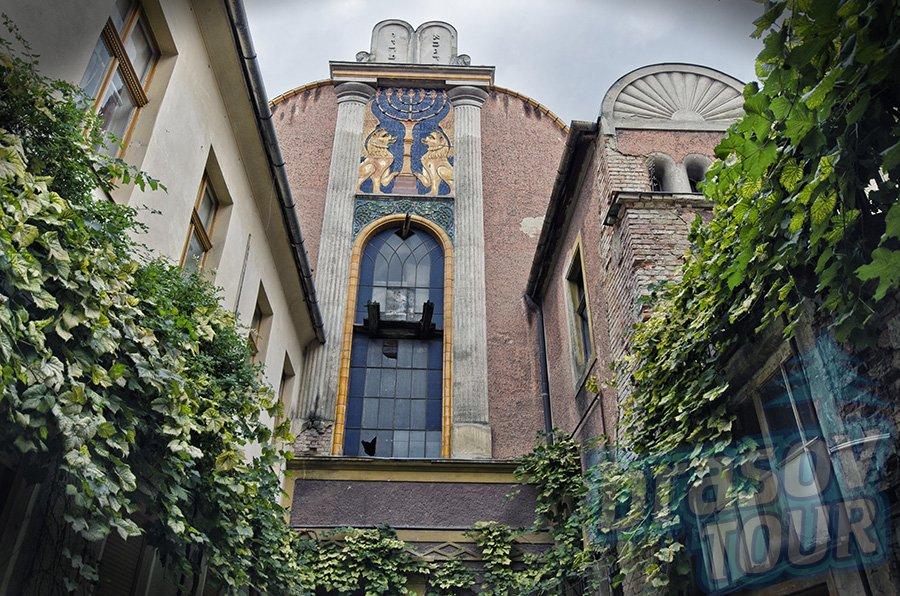For the connoisseurs, the word “Brașov” brings to mind images such as medieval fortifications, picturesque landscapes, historic buildings, and cobbled streets. In the past, it was known as the “Crown City”, and once you cross its threshold, you will see that the title is still suitable in our current days. Today, Brașov has become a place where history and contemporaneity coexist in harmony, offering visitors unforgettable experiences and memories. Below you will find some of the tourist attractions that you can not miss if you arrive in this city:
The Black Church
This is the largest Gothic-style church in Southeast Europe, its construction work going on for 100 years. The originality of the name comes from an unfortunate coincidence: in 1689, a ruthless fire engulfed the city and the walls of the church darkened. The place of worship hides real gems: Anatolian carpets from the seventeenth and eighteenth centuries, one of the largest organs in Southeastern Europe and one of the most beautiful Gothic altars in Transylvania.
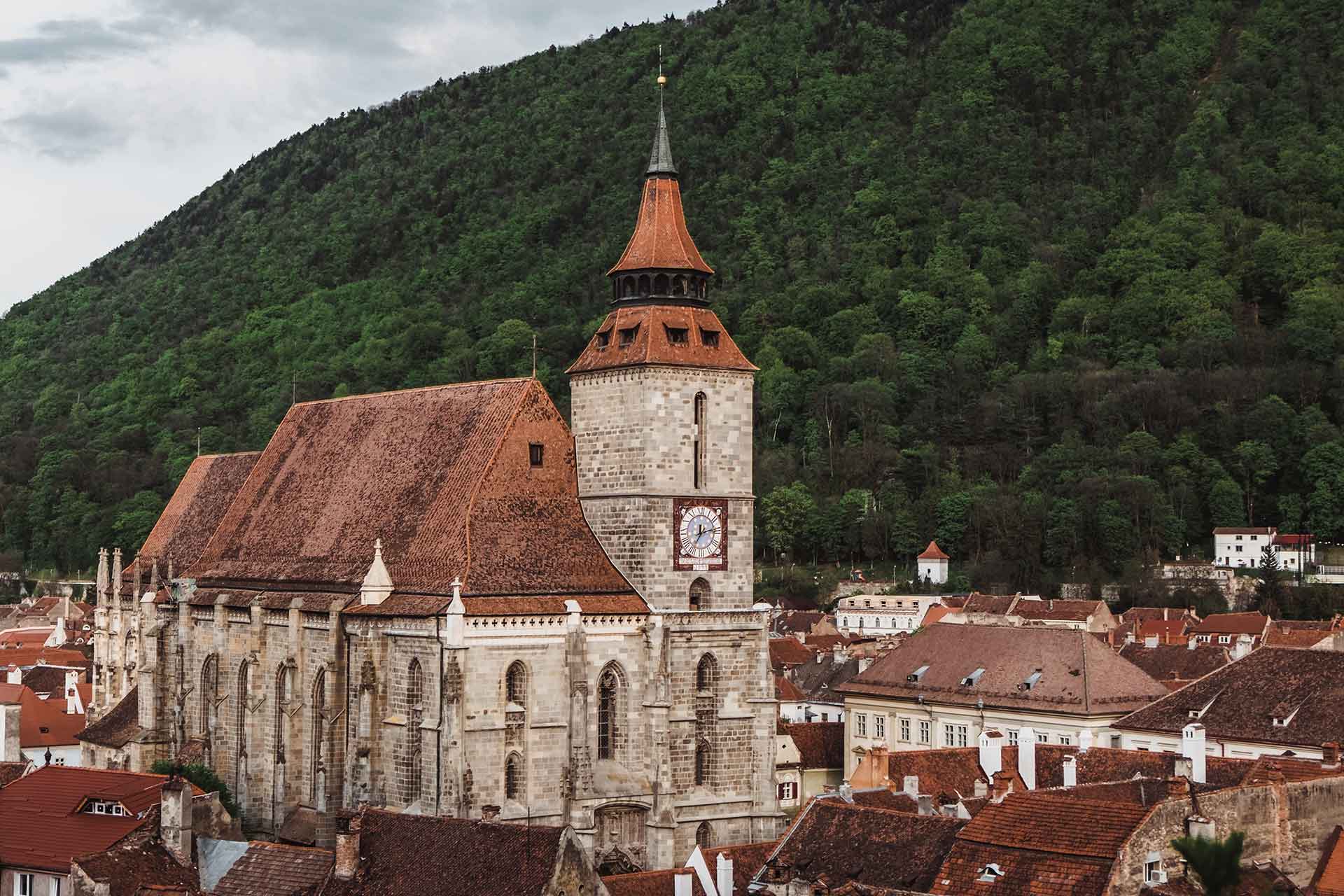
The Council Square (Piața Sfatului)
Found in the centre of the city, it can be likened to a portal to the times when trading was in full bloom. Fairs where Romanian traders exhibited and sold their goods were organized here. The space is surrounded by the walls of the old fortress and the buildings it houses give it a medieval air. The old City Hall building, the Council House, the Merchants’ House, and the Assumption Cathedral are just a few of these buildings.
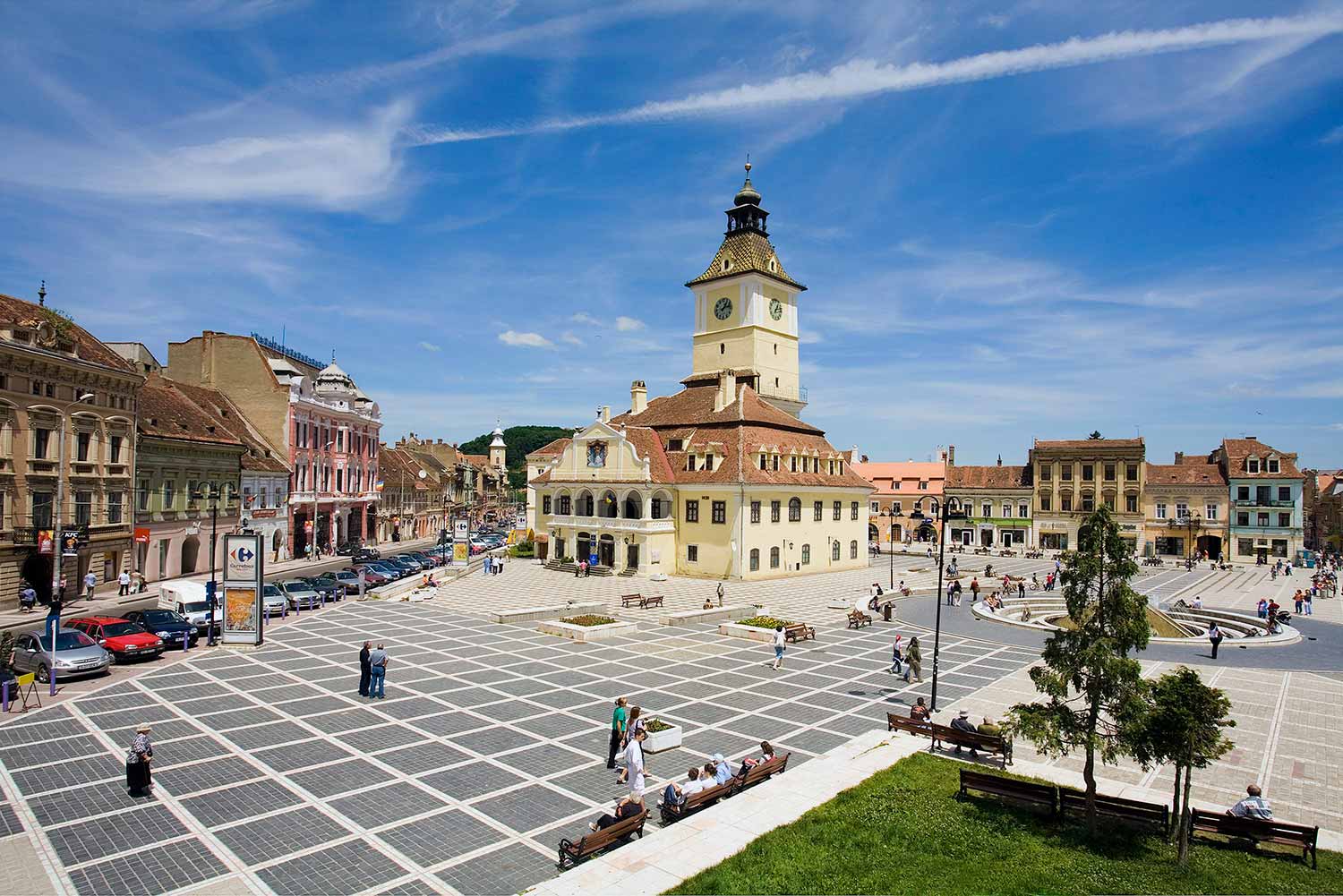
Sforii Street
This is one of the narrowest streets in Europe and is the most perfectly Instagrammable place. Initially, the alley was meant to be a corridor for firefighters but this is no longer valid today.

Tâmpa
Tâmpa mountain is located in the heart of Brasov and is the highest point of the city, with an altitude of 960 m. You can choose to climb on foot or by cable car to enjoy a unique view of the city.
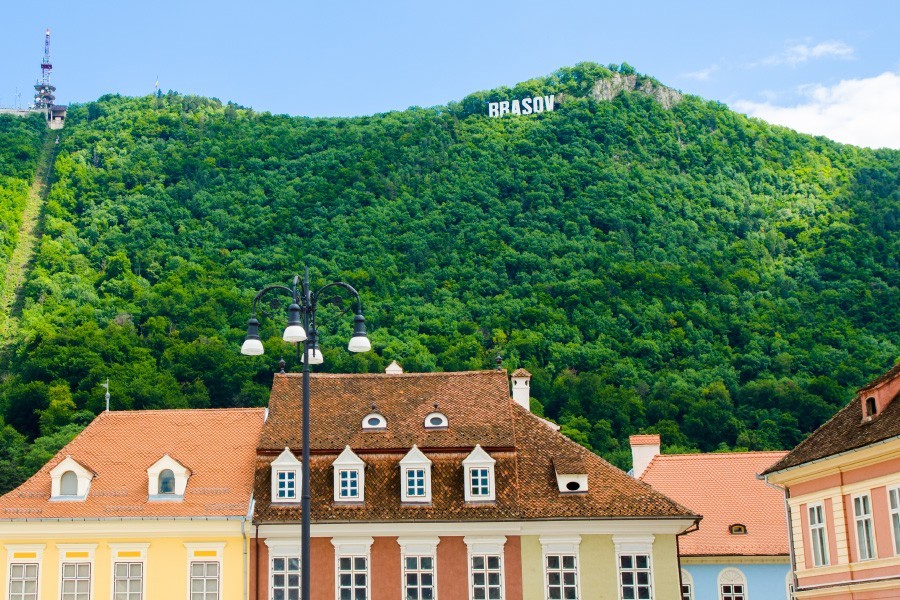
Brașov Citadel
The fortress is surrounded by a forest and it can be reached either by car or on foot. The walls of the fortress testify to six-century-old stories. The view you have from here is unmissable.

Union Square
Union Square is the historic centre of the city and is a landmark that should be on the list of any tourist. In the past, it was called “Prund Square”, due to the pebbles from the flowing waters that came from Solomon’s Stones (Pietrele lui Solomon). Today, the square hosts historical buildings such as the Museum of the First Romanian School, the Church of St. Nicholas, and the statue of Deacon Coresi, who was the editor of the first books printed in Romanian.
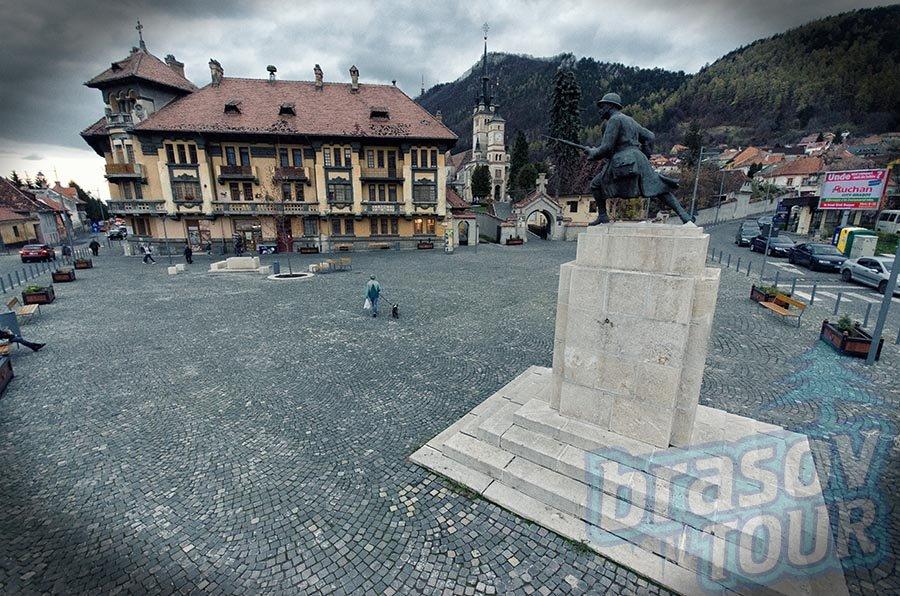
The Palace of Justice (Palatul Justiției)
This building was erected between 1900 and 1902 and today it houses the Court of Appeal, the Prefecture and the County Council. The construction is made according to the eclectic French architectural style. The Palace of Justice is an imposing building located on the Boulevard of Heroes, at number 5.

The Art Museum
The museum is housed in an iconic building, representative of the neo-baroque style. The museum houses a national gallery with pieces of painting and sculpture, as well as elements of decorative art. This space frequently hosts exhibitions where both national and international masterpieces are presented to the general public. The museum is located on Bulevardul Eroilor, at number 21.
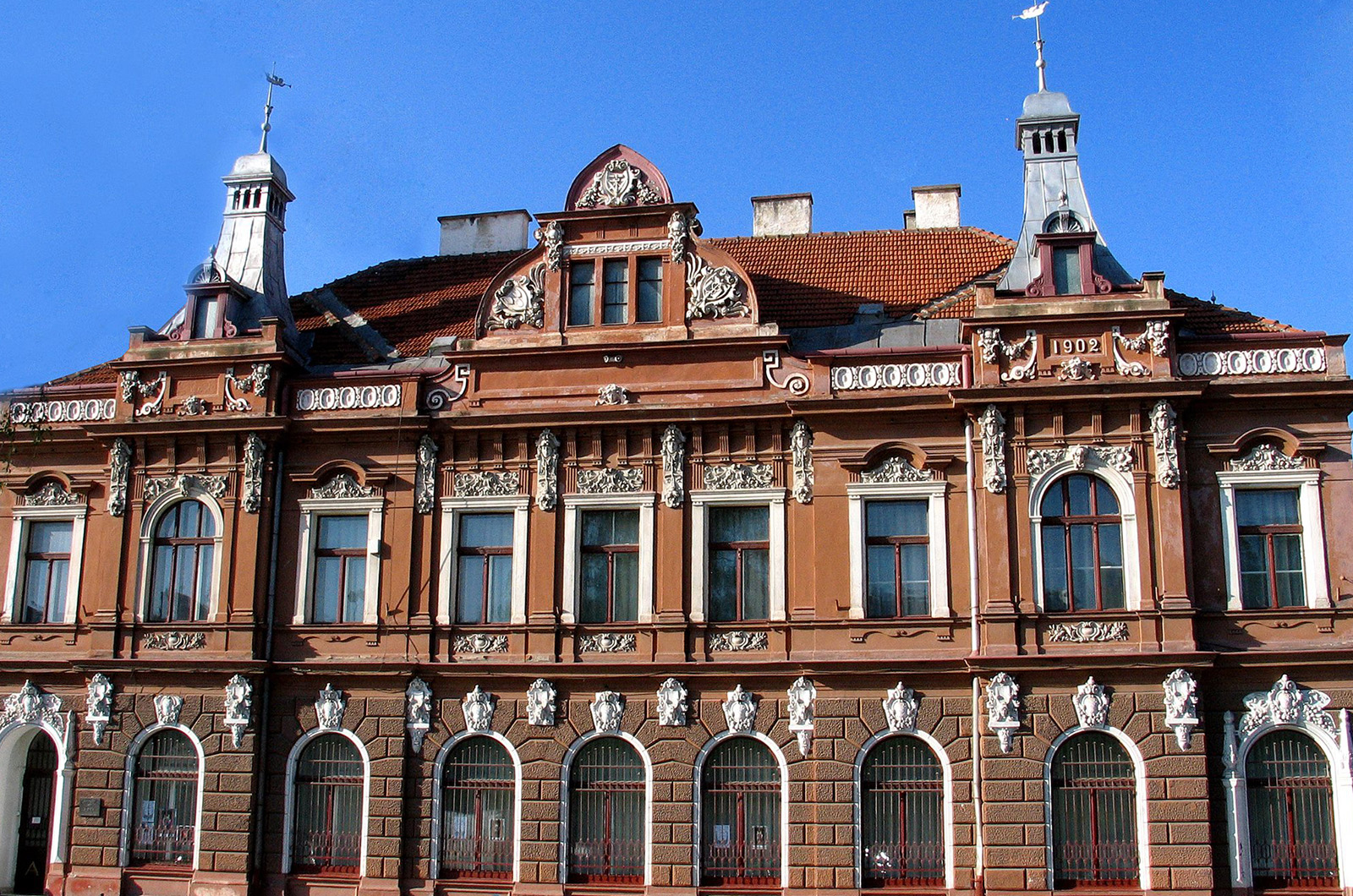
The Beth Israel Synagogue
This edifice acquired the title of a historical monument and serves the Jewish community in Brașov. The building was built between 1899-1901 in the neo-Gothic architectural style, to which Moorish elements were added. The synagogue is located on Poarta Șchei Street, at number 29.
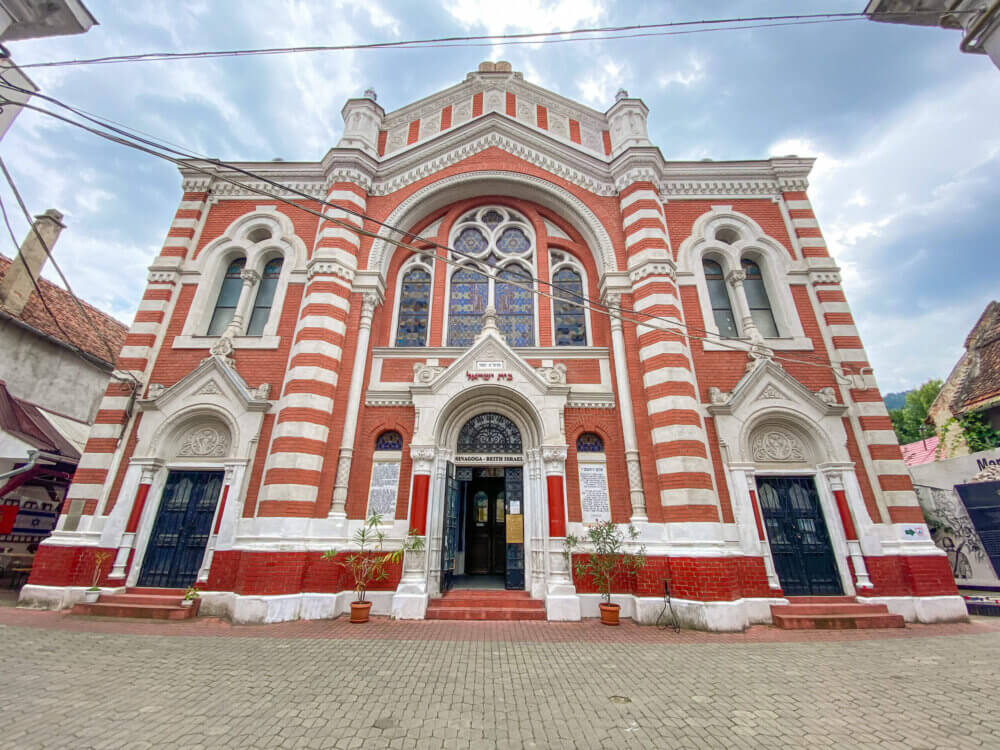
The Orthodox Synagogue
On Castle Street (Strada Castelului), at number 64, there is another Jewish place of worship whose architecture leaves no one indifferent. The synagogue is built in an eclectic style and dates from 1924. The facade is decorated with ceramic mosaic with vegetal elements, as well as two lions. Currently, it is not possible to visit the interior, but this does not prevent tourists from going to admire the building that has withstood many trials during its existence. For example, in the interwar period, the synagogue was severely damaged.
